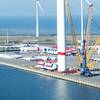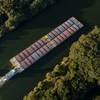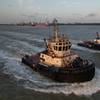POLB Looks to Becoming an Industry Hub
The Port of Long Beach is an economic engine that purrs like a luxury sedan, but Thomas Fields, President of the Port of Long Beach Commission, believes it has the potential to roar like a racecar.
“As the nation’s second busiest trade gateway, we are an ideal nucleus for a cluster of economic activity built on the maritime industry,” said Fields, the President of the Long Beach Board of Harbor Commissioners. “There is so much opportunity.”
An industry cluster is a geographical concentration of interconnected businesses, suppliers and associated institutions that share a specialized infrastructure, labor markets and services for competitive advantages and gains. Apply it to Long Beach, and the picture emerges of a port-city where a wide range of industries – banking and finance, information technology, environmental firms, manufacturing and others – can flourish around the existing core built on international trade.
The concept, which Fields began to explore more than a year ago, was the centerpiece of his recent inaugural address as board president. In late August, Fields and Dr. Noel Hacegaba, the Port's Acting Deputy Executive Director, took the message to the Global Initiatives Council of the Los Angeles Chamber of Commerce
“Currently our Port is awarding $700 million a year in contracts to companies,” said Fields, who joined the commission in 2009. “We can leverage those contracts to attract related businesses to this city and the high-paying jobs, tax revenues and investment that they bring.”
Fields is already setting the stage for this vision to become a reality by pursuing a port-city partnership with Long Beach Mayor Bob Foster. While the Port can be the driving force, successful industry clusters, such as the automotive model that revitalized the state of South Carolina, are built on strong alliances, he said.














